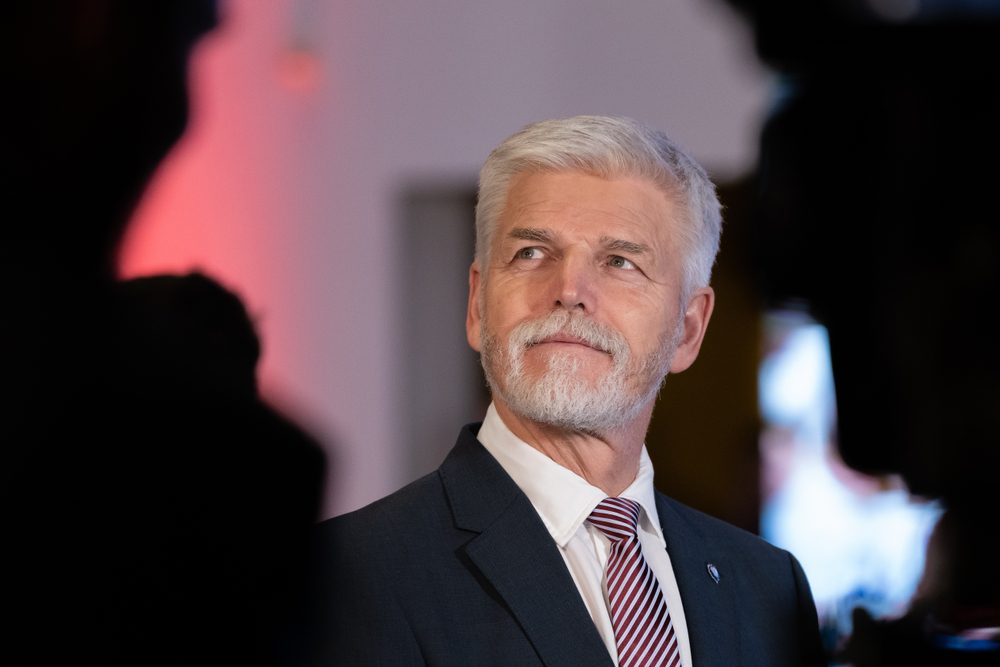
With all votes counted, former high NATO official Petr Pavel appears to have won the second round of Czech presidential elections with a substantial margin. The turnout in the runoff vote set a new record of 70.2%.
Pavel defeated former Prime Minister Andrej Babiš with 58.3% of the vote, Czech and international news agencies reported Saturday, January 28th. Czech Prime Minister Petr Fiala, as well as Babiš, congratulated Pavel on his victory.
During his victory speech at his Prague headquarters, the 61-year-old Pavel told supporters that “values like truth, dignity, respect and modesty have won.” He was convinced, he added, that “these values are shared by the vast majority of us, it is worth us trying to make them part of our lives and also return them to the Prague Castle [seat of government] and our politics.”
Later, he tweeted: “do not worry, I will handle it!”
V klidu, to zvladnem! 🇨🇿 pic.twitter.com/K37nybjDyO
— Petr Pavel (@general_pavel) January 28, 2023
In the first round two weeks ago, Pavel only narrowly beat businessman and billionaire Babiš. Since neither candidate received more than 50% of the votes, a second round of voting was necessary.
The Czech Republic’s new president began his military career in communist Czechoslovakia in the 1980s. In 1985, he joined the Communist Party of Czechoslovakia, remaining a member until Czechoslovakia’s 1989 Velvet Revolution, which brought down its regime.
He remained an enlisted man and soon rose to become the Czech Republic’s top military officer. In 2014, appointed head of NATO’s Military Committee, as a crowning achievement of his military career. He retired in 2018 and shortly thereafter showed aspirations of becoming president.
A social liberal and independent candidate, Pavel enjoys the support of the current liberal coalition government and other hopefuls who dropped out or lost in the first round, among them Danuše Nerudová, a Green.
Pavel’s controversial opponent is currently a parliamentarian and was the Czech Republic’s prime minister between 2017 and 2021.
Just before the election two weeks ago, Babiš was acquitted of having committed fraud by using European subsidies. Both as prime minister and a member of the opposition, he was known to be critical of Russia while supporting Ukraine.
The presidential campaign marked a change in that outlook, as Babiš suddenly became critical of NATO’s policy towards Russia. Indeed, he had campaigned on the war in Ukraine potentially spreading, and advised peace talks. Pavel, as a NATO high-up, could drag the Czechs into a war, he argued; a claim Pavel rejected.
In contrast, Pavel has spoken out in favor of additional support for Ukraine as well as the introduction of the euro in the Czech Republic.
In light of this, Ukrainian President Volodymyr Zelenskiy congratulated Pavel on his success and said he looked forward to “close, personal cooperation.”
Upřímně blahopřeji @general_pavel k přesvědčivému vítězství ve volbách prezidenta České republiky. Oceňuji Vaši podporu Ukrajině a našemu boji proti ruské agresi. Těším se na naši úzkou osobní spolupráci ve prospěch národů Ukrajiny a České republiky a v zájmu sjednocené Evropy.
— Володимир Зеленський (@ZelenskyyUa) January 28, 2023
Pavel will be sworn in as president in March, replacing outgoing Miloš Zeman, also no stranger to controversy, who backed Babiš. The Czech Republic’s presidency is mainly symbolic. The president has little executive power, but may appoint the prime minister and central bank heads and nominate judges to the constitutional court.
